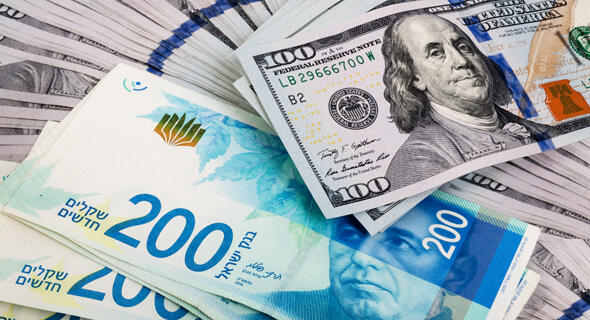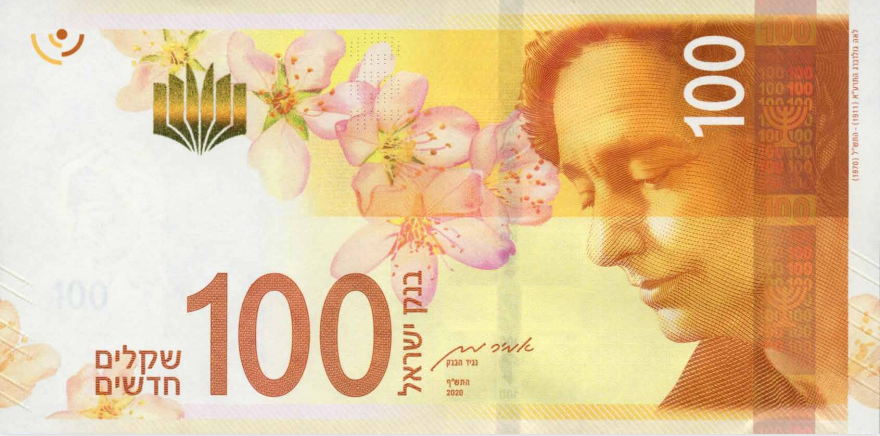The shekel strengthens today (Wednesday) after its significant decline against leading currencies in recent days. The USD exchange rate is set at 3.754 shekels, a decrease of 0.4% compared to yesterday's rate, following a crossing of the threshold of 3.77 upwards during yesterday's trading. The EUR exchange rate is fixed at 4.097 shekels, reflecting a 0.5% decrease.
INFLATION DOWN
Read more:
Over the past week, a notable depreciation of the shekel commenced and continued to strengthen until this morning. Contextually, recent inflation data revealed a significant stabilization in the annual inflation rate, which decreased to 3.3% from last month's 4.2%. Nonetheless, projections suggest that inflation could rebound to 4% or even higher in the coming month.
The growth data for Israel's second quarter were unveiled today, revealing a modest annual growth of merely 3%. This figure stands in comparison to both the preceding quarter and the equivalent quarter in 2022, following a growth of 2.9% in the initial quarter.
Concurrently, financial experts within both banking institutions and investment houses have significantly increased the likelihood of the Bank of Israel implementing an imminent interest rate hike, expected to occur around September 4th. This adjustment comes in light of the substantial appreciation of foreign currencies in relation to the shekel.
Market experts predict that the uptick in the dollar exchange rate might trigger an interest rate hike. This projection stems from the escalating costs of imported raw materials and goods, a result of the significant depreciation of the shekel. As a result, there's a likelihood of inflation surging in the August monthly index. Analysts emphasize that the Bank of Israel won't likely remain passive in this situation. Should there be an additional 0.25% increase in interest rates, the overall rate would climb to 5%, pushing prime rates to 6.5%. This adjustment could have substantial ramifications on the repayment schedules of mortgage borrowers.
Who wins and loses from the USD gaining momentum?
The appreciation of the dollar against the shekel means that Israelis currently enjoying their vacations abroad during the peak holiday month are facing higher expenses in countries across Europe, the United States, and various other nations, compared to the previous summer.
Conversely, exporters and industrialists are grappling with a reluctance to embrace the surge in their profits due to the strengthening of the shekel. The dollar, euro, and other foreign currencies have gained significant ground against the shekel in recent months, positioning it as one of the world's most feeble currencies. In fact, it has even slipped in value compared to currencies like the Lebanese pound and the Jordanian dinar. Key figures at the Bank of Israel attribute the shekel's decline to the intricate impact of ongoing judicial overhaul, with a substantial portion, approximately 10%, squarely linked to this reform process.
Uri Greenfeld, the primary strategist at Psagot investment firm, conveyed to Ynet that "the recent oscillations within the foreign exchange market are primarily driven by global trends rather than localized events. Anticipated reductions in interest rates in the United States are being pushed back to the second quarter of 2024, and this market volatility is also aligning with the dollar's strengthening against most of the world's currencies. Certainly, local factors are not favoring the shekel, and the lack of political clarity further complicates investors' decisions to repatriate substantial funds to Israel."





